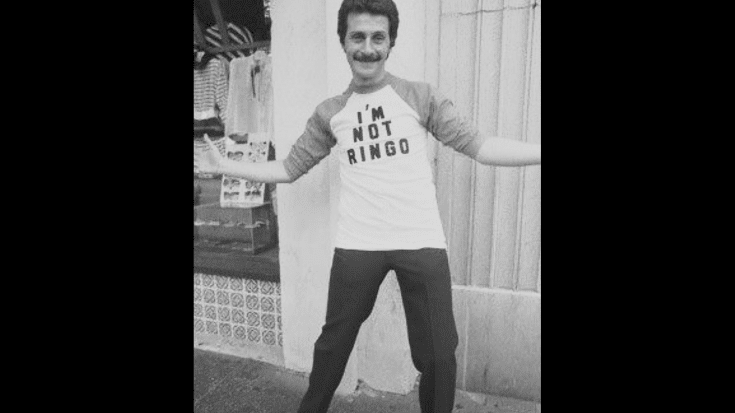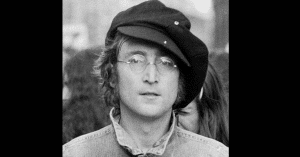9 Unluckiest Musicians in Classic Rock History

via OG TV / YouTube
When considering the hierarchy of misfortune, rock stars occupy a curious space between lottery victors and heirs to vast oil fortunes. The general sentiment leans towards a lack of sympathy for famous musicians, who amass considerable wealth, embark on globe-trotting tours, revel in the adoration of devoted fans, and seem to effortlessly navigate thriving romantic lives – all without the constraint of a 9-to-5 job.
Yet, it would be remiss to overlook the challenges that rock stars encounter along their journey. Notably, the perils associated with the profession, whether stemming from perpetual travel or the rebellious and deceptively high-pressure lifestyle of rock ‘n’ roll. Below are the 9 Unluckiest Musicians in Classic Rock History:
Allman Brothers
View this post on Instagram
Almost one year after Duane Allman from the Allman Brothers Band passed away in a motorcycle accident in Macon, Georgia, bassist Berry Oakley also died in a motorcycle crash nearby. Duane’s accident occurred shortly after their popular album ‘At Fillmore East’ was certified gold in 1971, which was seen as a peak moment in his guitar career.
Badfinger
View this post on Instagram
Badfinger had a streak of bad luck that seemed to never end. Although they had four hits in a row in the early 1970s, things took a turn for the worse with poor business deals, declining success, and tragic losses. The band experienced deep sadness, and in April 1975, lead singer and guitarist Pete Ham took his own life at the young age of 27. Despite their efforts to continue, Badfinger was once again devastated by suicide when bassist Tom Evans also ended his life in November 1983. Their drummer, Mike Gibbins, passed away in 2005 from a brain aneurysm.
Syd Barrett
View this post on Instagram
Syd Barrett was the lead singer of Pink Floyd during their early psychedelic period. He wrote many songs for their first album in 1967. Sadly, Syd started using drugs and this led to mental health struggles. He became more and more isolated and had a mental breakdown from which he never fully healed. In 1968, Pink Floyd decided to continue without him. Syd released two more albums on his own but then chose to live in seclusion for the rest of his life. He passed away in 2006 due to pancreatic cancer.
Pete Best
View this post on Instagram
Pete Best was part of the Beatles before they became famous. Unfortunately, he didn’t stay with the band during their successful years and was replaced by Ringo Starr. This decision by the producer meant that Ringo got to enjoy all the fame and fortune that came with being a Beatle. Pete was very upset and even tried to take his own life when the Beatles were at their most popular. However, many years later, he received a huge amount of money through royalties when the Beatles released their ‘Anthology’ album in 1995, which included rare recordings.
Dave Evans
View this post on Instagram
AC/DC is known for having two famous lead singers, Bon Scott and Brian Johnson. However, not many people remember Dave Evans, who was the band’s first vocalist but didn’t stay for long. In 1973, they released a single called “Can I Sit Next To You, Girl” with Dave as the frontman. However, he was eventually fired because of disagreements about the band’s artistic direction and conflicts with the management. After leaving AC/DC, Dave went on to join less popular bands.
Brian Jones
View this post on Instagram
The Rolling Stones are well-known for their long careers, but Brian Jones wasn’t as lucky. In the beginning, he was the leader and manager of the band. However, as the Stones became more popular, his role became smaller. Mick Jagger and Keith Richards took charge of the band in June 1969, and Brian was asked to leave. Sadly, less than a month later, on July 2, he was found dead in his swimming pool. The official report said it was an accident, but this made Brian one of the early members of the “27 Club,” a group of musicians who passed away at the age of 27.
Lynyrd Skynyrd
View this post on Instagram
Lynyrd Skynyrd had just started their biggest tour ever when tragedy struck. On October 20, 1977, their plane ran out of fuel and crashed in the woods of Gillsburg, Mississippi. Sadly, Ronnie Van Zant, Steve Gaines, and Cassie Gaines were killed in the accident, and the rest of the band was seriously injured. After the crash, the band broke up, but they eventually got back together in 1987. Unfortunately, one of the band members, Allen Collins, had more bad luck. He was in a car crash in 1986 that left him paralyzed from the waist down, so he couldn’t be part of the reunion. Allen passed away on January 23, 1990, due to chronic pneumonia.
Steve Peregrin Took
View this post on Instagram
Steve Peregrin Took’s death was quite strange. He was a guitarist for T. Rex in the early 1970s but didn’t receive royalty payments for his work until the 1980s. In October 1980, he got a big payment and became very excited. Sadly, he decided to drink alcohol and take drugs. The next morning, he was found dead, supposedly choking on a cocktail cherry. The official cause of his death, similar to Brian Jones from our earlier list, was ruled as “death by drug misadventure.”
The Animals (except for Alan Price FOR A REASON)
View this post on Instagram
The Animals, except for Alan Price, have a sad story. They recorded a famous song called “The House of the Rising Sun” in 1964, and it became a huge hit. However, when it came time to put the credits on the record label, there wasn’t enough space to list all five band members. So, the organist, Alan Price, was the only one listed as being in charge of the arrangement, meaning he was the only one who got credit and paid for writing the song. This was not fair to the other band members, and they missed out on receiving money for the song’s success. Although it didn’t happen, the author of the story thinks that if it had happened to him, he would have felt upset too and would have wanted Price to share the money.


















